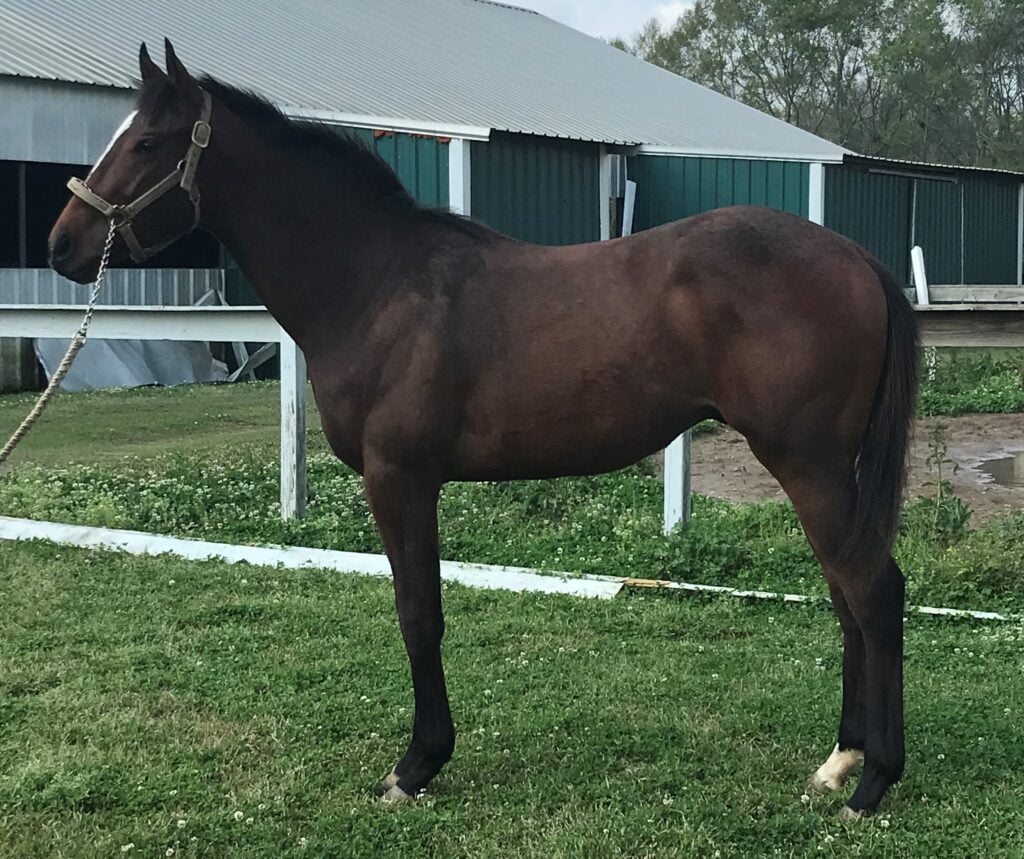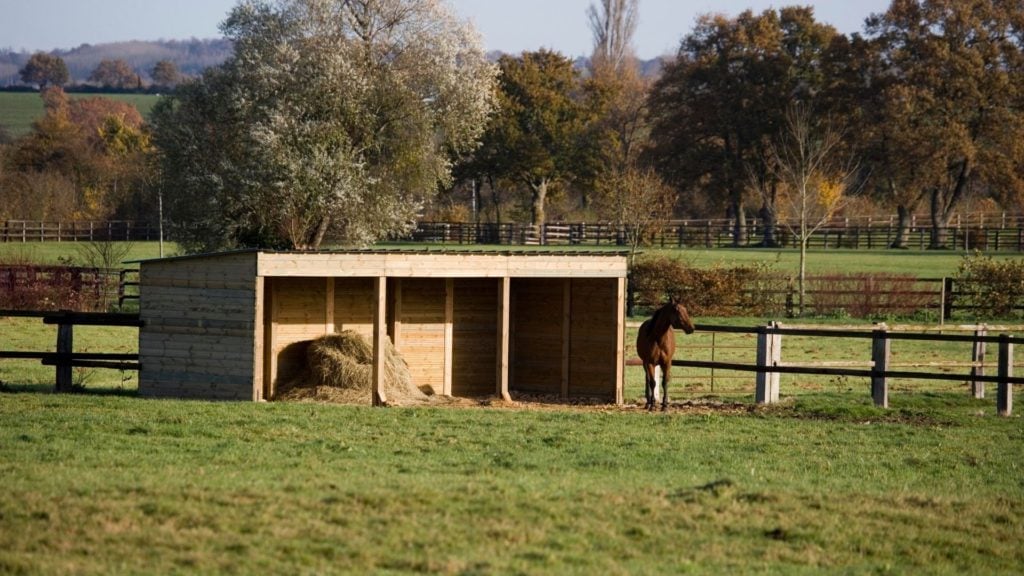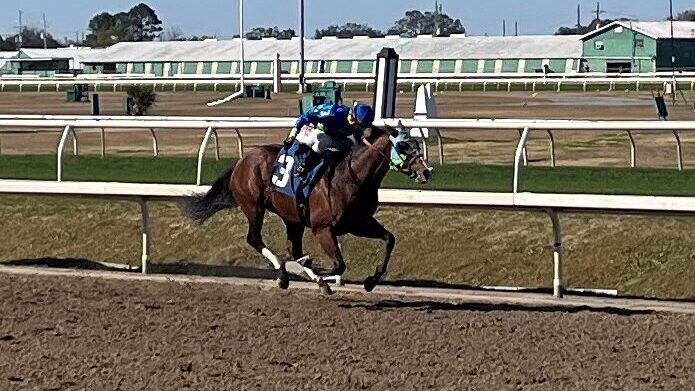What Does It Mean When a Gelding Continually Drops
Any links on this page that lead to products on Amazon are affiliate links and I earn a commission if you make a purchase. Thanks in advance – I really appreciate it!
When I initially purchased a Thoroughbred colt, I hoped he would flourish into a successful breeding stud. However, before running his first race, the trainer recommended that he be gelded. I wasn't sure what to do, so I decided to research gelding to learn more to make an informed decision.
A gelding is a castrated horse. Racehorses are gelded to enhance their potential to be a winner on the track. Before being gelded, some colts are unruly or have medical conditions that hinder their training and running ability.
There are reasons why horse trainers want to geld a horse, and there are also reasons that a horse owner wants to avoid gelding his horse. Let's explore the theories behind gelding a horse. And at the end of the article, I'll let you know what happened with my colt.

Why do Racehorse Trainers advise Gelding a Horse?
The first question an owner must consider is why the trainer recommends the horse be gelded, and then can they guarantee the surgery will resolve the issues? I needed these questions answered, so; I decided to take some steps to find out.
The primary reason trainers advise owners to geld their horse is to change the horse's attitude. A stud colt is like a teenage boy with hormones flooding his body, and he is unruly and hard to train.
When the stud colt is asked to exercise and learn, his mind is invariably on other things. Mostly the girls, the fillies, on the track. He will start kicking in the air, biting at other horses, and rearing up — all mating signals in the horse world.
A gelding is easier to train; he can focus on his workout without hormones raging through his bloodstream, leading to more success in the races. It isn't easy to get a horse in running shape that doesn't want to train.
Luckily this year, we have two colts in training that are working nicely and haven't exhibited stud behavior. Hopefully, this will continue, and we can avoid castrating them.
Temperament
Stud colts are often kept apart from other horses. The bad behavior of a stud colt leads to dangerous conditions for the other horses and the handlers. Ungelded colts commonly will have to be kept apart from other horses.
Stud colts can also develop heavy muscling and a thick neck which causes more weight on his front end and slows him. However, horses gelded early may be more proportioned and grow taller than they would have if left as a stallion.

Also, a gelding stays sound longer than its stallion counterpart. The reason could be because of their proportionate size. (See below: Notable Racehorse Geldings)
It's medically necessary to castrate some horses.
Besides behavioral issues, sometimes there are medical reasons a horse needs to be gelded. When a horse's testis fails to drop into his scrotum, it is known as a condition called "Cryptorchid." This condition can lead to walking and running problems.
If a horse sustains an injury, he may need to stay in his stall for an extended period to recover. Stud colts may not take well to the downtime and cause further damage. Gelding a horse in this situation allows him to recover calmly from his injury.
The Gelding Procedure:
Horses are customarily gelded when they are still young; this can be as early as three months. Younger horses usually recover quicker than older horses.
However, if castration is performed on a colt too soon, it can lead to complications because their testicles have not entirely dropped. Likewise, If you wait until the horse gets too old, he is more likely to continue with stud-like behavior after gelding.
Gelding a horse is not a complicated procedure.
Gelding a horse is not a complicated procedure and can usually be done at the location where the horse is kept. However, because of possible complications associated with castration, a veterinarian should always perform the procedure.
Before gelding your horse, make sure he is in good health. Check your records to ensure his vaccinations are up to date. It is also good to have a complete vet check before the procedure.
You want to confirm that the horse is in good overall condition and does not have any health problems that would prevent him from successfully undergoing surgery.
Generally, the procedure is as follows: A sedative is given to the horse, and he is laid on his side. Once he is calm and lying down, the vet will clean the surgical site thoroughly.
Next, an incision is made, and the testicles are exposed. The blood vessels above the testicles are clamped off, and the testes are removed. Sometimes stitches are applied, but they are not always necessary.
If the horse has a "Cryptorchid," the procedure may be much more complicated and should be performed in a veterinarian facility by an experienced surgeon.

Horses recover pretty quickly from a gelding procedure.
Recovery time is between 10 and 20 days. Of course, they will be sore and will have some swelling.
In some instances, there will be bleeding caused by the horse aggravating the surgical site by knocking off the scab. Be sure to keep a close watch on your horse in the days following his surgery and notify the veterinarian of any complications.
It is best to keep the horse in a stall overnight and turn him out alone in a paddock the next day. After that, he should be fine to turn out in a pasture with other horses. Just remember to regularly examine the incision for any heat or swelling that extends into the leg area.
Testosterone levels drop within 48 hours after surgery.
After his short recovery period, he should be ready to return to his training with a new attitude. The drop in testosterone levels occurs relatively quickly, usually within 48 hours after surgery. However, depending on the age at castration, it could take up to six months before all stallion-type sign has left.
After surgery, horses have been known to continue to act in a studdish manner; when this occurs, the horse is said to be "proud cut." People once believed a portion of the testes was left inside the horse, thus continuing to produce testosterone and leading to the continuation of stud behavior.
However, with the advances of today's technology, it is unlikely that horses exhibiting stallion-type tendencies are the result of the failure to remove all the testis.
Some veterinarians now believe that the horse's body has hyperactive glands, which could be the source of testosterone leading to the "proud-cut" behavior. It could also be that the horse does not have proper training and behaves unruly.

Some owners avoid gelding their horses.
The Big Dream, owning a Colt that wins enormous amounts of money, then he spends his retirement years standing at stud for massive sums. Fusaich Pegasus is a perfect example of the path everyone dreams of when buying a stud.
He is the son of Mr. Prospector, won the Kentucky Derby, then ran only three more times and earned almost 2 million dollars. He sold for $60 million and transitioned to a new career as a stud.
American Pharoah won the triple crown in 2014; his stud fee is $200,000. He earns about $30 million in stud fees during a regular breeding season.
Last year's Triple Crown winner Justify ran in a total of six career races before his breeding rights sold for $75 million.
However, the chances of owning a horse like this are slim to none; only a tiny fraction of horses ever become successful studs. Also, if you can't win a race with your horse because he won't train, no one will ever pay to breed with your horse.
Many trainers believe that if they had convinced an owner to geld his horse, the horse could have had a successful racing career.
More than 90 percent of male horses do not have a breeding stallion pedigree and should be gelded. This thought process is the "gene pool" theory, which only breeds the best of the best to make better horses and breed out the weakness.

Notable Racehorse Geldings
While geldings are sometimes less desirable than stallions, they can actually make great racehorses. Geldings are typically more focused. easier to train and more even-tempered than stallions.
Some of the most successful racehorses in history have been geldings, including the great John Henry. Here is a look at a few of the great racehorses that were gelded:
- Kelos– Was the horse of the year five times in a row. He started 63 races, winning 39 and earning over 2 million dollars (this was in the 1960s). He raced for eight years. Died at 26 years old. Voted the #4 racehorse in the list of top 100 racehorses.
- Forego– Three-time Horse of the Year Winner; He finished fourth in the Kentucky Derby. He started 57 races with 34 wins and almost 2 million in earnings. He lived to be 27 years old; he broke his leg and was euthanized.
- John Henry– Two-time Horse of the Year Winner, Started 83 races with 39 victories earning over 6.5 million. John Henry is the oldest horse to win the Arlington Million stakes race. Died at the age of 32. He was listed as #23 in the top 100 horses of all time.
- Mine That Bird– won the Kentucky Derby, finished second in the Preakness, and third in the Belmont Stakes. He made 18 career starts earning $2,228,637.
- Funny Cide– He became the first gelding to win the Kentucky Derby; since 1929, he went on to win the Preakness before finishing third in the Belmont. Funny Cide made a total of 38 starts earning $3,529,412
Besides being all geldings, notably, all the horses had long lives and long racing careers. The long life of these horses supports the theory that geldings seem to live longer, healthier lives.
What Happened to My Horse?
We listened to the advice of our trainer and had our horse castrated. Before he was gelded, he was mean and unruly; afterward, he was mean. He was always a bit hard to handle, but he became successful on the track and had a long racing career. I ended up losing him in a claiming race.
Six geldings have won the Kentucky Derby.
Only six geldings have won the Kentucky Derby; however, there have been 108 geldings qualified to run in this prestigious race. Although geldings may not fare well in the Derby, they represent themselves well in most other races.
Ex-racehorse geldings participate in various equine activities.
Geldings no longer used in racing can be trained in other equine activities. Thoroughbred geldings are often used in dressage and jumping.
Quarterhorse geldings can be used as barrel horses, cutting horses, or trail riding horses. Retired racing quarter horses are desired for use in many equine activities.
Some former racing geldings are turned out to pasture to enjoy their life as a horse.
Below is a helpful YouTube video explaining horse personality and the differences between Mares, Geldings, and Stallions.
Source: https://horseracingsense.com/what-is-a-gelding-best-horse/
0 Response to "What Does It Mean When a Gelding Continually Drops"
Post a Comment